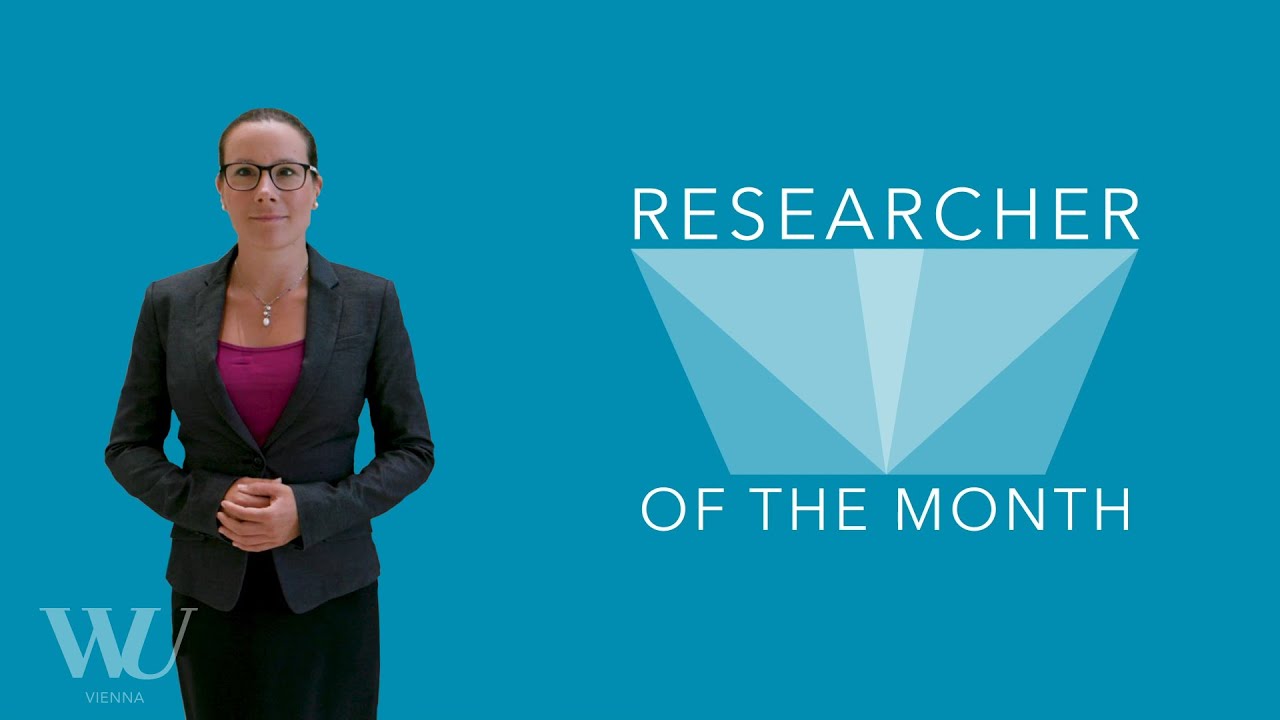Susanne Kopf

Susanne Kopf
Researcher of the Month
Social media: Critical global discussions or corporate censorship?
In our digital age, the web seems to provide a boundless forum for exchanging ideas on a global scale. Social media, online encyclopedias like Wikipedia, blogs, forums – all these platforms offer information and spaces for communication. However, not all of them are equally well suited as arenas of critical discourse. Especially for-profit online media, such as YouTube, exert a strong influence on the nature of the information offered. Their content policies, which determine what may be posted, play a crucial role in this context, according to the latest findings of WU researcher Susanne Kopf.
Global challenges require global answers – and global discussions. The internet offers a wide array of information and communication platforms, but they vary greatly in terms of quality and accessibility. Susanne Kopf from WU’s Institute for English Business Communication takes a closer look at these differences in her research. Her latest studies show that for-profit media like YouTube are less well suited for critical discussions than non-profit platforms such as Wikipedia. As Susanne Kopf explains, “Even though Wikipedia is not presented specifically as a communication platform, the process of editing and reviewing articles on Wikipedia itself requires critical discussions to reach a consensus. YouTube, in contrast, has guidelines that, in certain ways, censor content created by its cooperation partners, for example influencers.”
Sugarcoated content
YouTube creators with large numbers of subscribers can cooperate directly with YouTube to get a share of advertising revenues – as long as they comply with YouTube’s content guidelines. These guidelines require that content must be advertiser friendly, meaning that the content must be positive or at least ideologically compatible with the advertised brand. Controversial topics and critical attitudes are not particularly welcome. “Ads that are shown in contexts perceived as controversial or negative can hurt brand identity. The companies that place the ads are aware of that, as evidenced for example by the 2017 advertising boycott, where many companies terminated their advertising contracts with YouTube or threatened to terminate them because their ads were shown alongside content that was ideologically incompatible. The language of YouTube’s content guidelines suggests that YouTube wants to avoid such problems by trying to sugarcoat content that generates ad revenues. But this distorts critical discourse on YouTube,” says Susanne Kopf. This means that when it comes to particularly controversial or sensitive issues such as the SARS-CoV-2 pandemic, the video platform is hardly able to provide a comprehensive picture. Susanne Kopf sees this as problematic because YouTube is one of the most popular online platforms worldwide, with over 4 billion videos being watched each day.
Dealing with uncertainties
In its guidelines, YouTube lists examples of content that is advertiser friendly and content that is not advertiser friendly. But even with these lists, many questions remain unanswered and many examples are unclear. And it’s the YouTube creators who have to deal with these uncertainties. “Apart from the fact that the advertiser-friendly content guidelines themselves impose restrictions on what can be posted, the uncertainties inherent in the discourse of the guidelines can lead influencers to produce content that is ‘safe’ and palatable to ensure that they’ll be able to generate ad revenues with their content,” Susanne Kopf points out. “Especially when it comes to big, global issues, it’s very important to have an exchange of ideas and information across borders. Many for-profit platforms are not suited for hosting these important discussions. For this reason, it’s crucial to look at each communication platform individually and assess whether it’s suitable for critical discussions and a comprehensive exchange of ideas.”
The studies:
Kopf, Susanne (forthcoming). Participation and Deliberative Discourse on Social Media – Wikipedia Talk Pages as Transnational Public Spheres? Critical Discourse Studies. p.115–148
Kopf, Susanne (forthcoming). “Rewarding good creators” – Corporate Social Media Discourse on Monetisation Schemes for Revenue-oriented Content Creators. Social Media + Society.

Susanne Kopf, a native of Upper Austria, has been an assistant professor at WU’s Institute for English Business Communication since 2019. She holds a PhD in applied linguistics from Lancaster University (UK). Her research interests include critical discourse studies at the interface of qualitative analysis and corpus-based linguistic methods. In her current research, she focuses on the digital platform economy, social media, and Wikipedia studies. She has published in renowned international journals such as Discourse & Society and Discourse, Context & Media. She has also contributed to a number of edited volumes and co-edited the volume “Discourses of Brexit.” Her research has earned Susanne Kopf several awards and prizes, including the 2019 Oberösterreichische Talentförderungsprämie.
